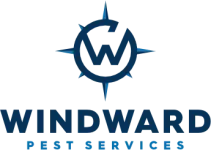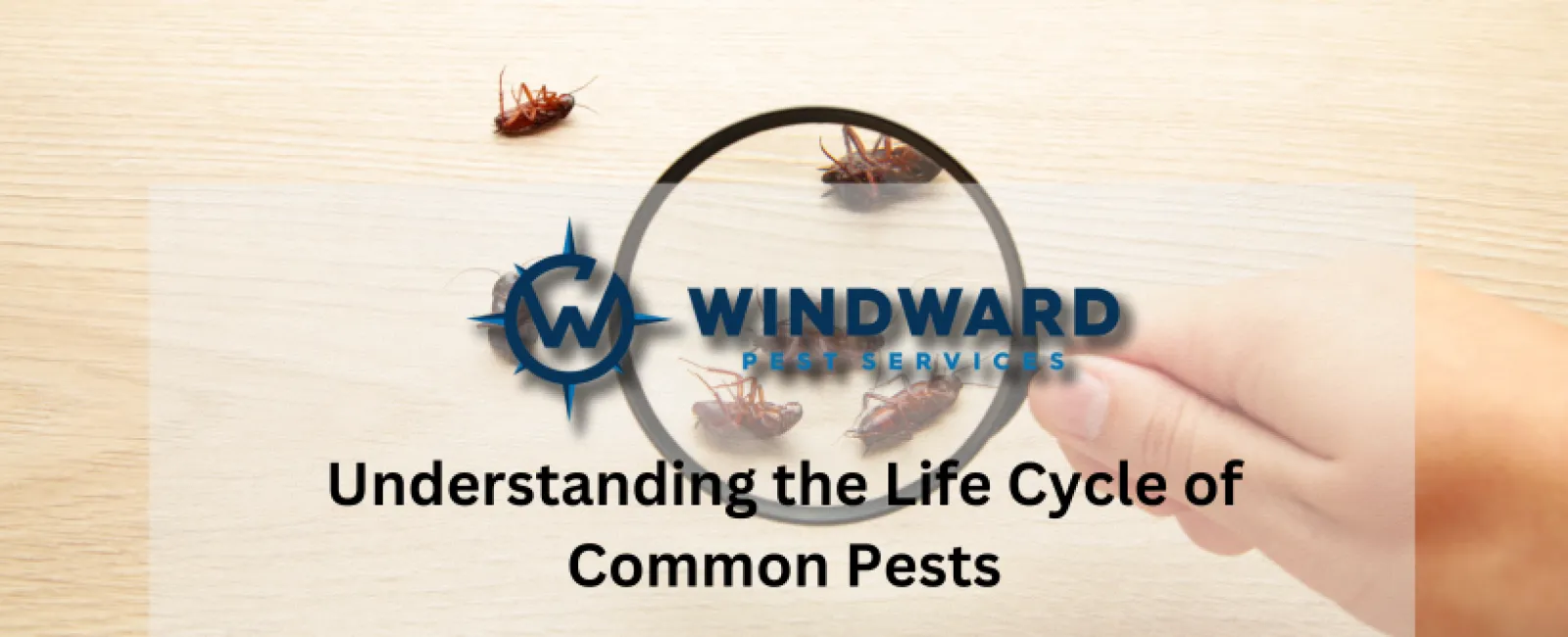Understanding the life cycle of common pests is crucial for effective pest management. By knowing how pests grow, reproduce, and spread, homeowners can implement targeted strategies to control infestations and prevent future outbreaks. This article will explore the life cycles of several common pests found in Atlanta, highlight the importance of pest inspections, and explain how Windward Pest Services provides comprehensive pest control solutions.
The Life Cycle of Common Pests
Termites
- Egg Stage: Termite queens lay thousands of eggs, which hatch into larvae. These larvae undergo several molts before differentiating into different castes: workers, soldiers, and reproductives.
- Nymph Stage: Nymphs are immature termites that will eventually develop into one of the three castes. The development stage depends on the colony's needs.
- Adult Stage: Adult termites include workers, soldiers, and reproductives. Workers gather food and maintain the colony, soldiers protect it, and reproductives (including the king and queen) are responsible for reproduction.
Understanding the termite life cycle is essential for effective termite treatment in Georgia. Regular pest inspections can detect early signs of termite activity and prevent extensive damage to your home.
Ants
- Egg Stage: Ant queens lay eggs that hatch into larvae. The larvae are fed and cared for by worker ants.
- Larval Stage: Larvae develop into pupae, which then transform into adult ants. The development time can vary depending on the species and environmental conditions.
- Adult Stage: Adult ants are classified into three castes: workers, queens, and males. Workers gather food and maintain the nest, queens lay eggs, and males mate with queens to reproduce.
Effective ant control requires understanding their life cycle and behavior. Atlanta pest control services, such as Windward Pest Services, offer targeted treatments that address the specific needs of different ant species.
Cockroaches
- Egg Stage: Female cockroaches lay egg cases called oothecae, each containing multiple eggs. The eggs hatch into nymphs.
- Nymph Stage: Nymphs undergo several molts before becoming adults. Nymphs are smaller and lack fully developed wings.
- Adult Stage: Adult cockroaches are fully developed and capable of reproduction. They are known for their resilience and ability to adapt to various environments.
Understanding the life cycle of cockroaches is crucial for effective pest control. Regular pest inspections and targeted treatments can help eliminate infestations and prevent future outbreaks.
Mosquitoes
- Egg Stage: Female mosquitoes lay eggs on or near water. The eggs hatch into larvae, also known as wrigglers.
- Larval Stage: Larvae live in water and undergo several molts before becoming pupae.
- Pupal Stage: Pupae, or tumblers, develop into adult mosquitoes. This stage is a transitional phase where the insect prepares for adulthood.
- Adult Stage: Adult mosquitoes emerge from the pupal stage and are capable of reproduction. Female mosquitoes require a blood meal to produce eggs, making them vectors for diseases such as West Nile virus and Zika virus.
Effective mosquito control involves targeting different stages of their life cycle. Windward Pest Services provides comprehensive mosquito treatments to reduce populations and minimize the risk of disease transmission.
The Importance of Pest Inspections
Regular pest inspections are crucial for early detection and effective management of pest infestations. Here's why:
Early Detection: Inspections help identify pest activity before it becomes a major problem. Early detection allows for prompt intervention, reducing the risk of extensive damage and costly repairs.
Accurate Identification: Professional pest inspections ensure accurate identification of pests and their life stages. This is essential for implementing targeted treatments that are effective and safe.
Customized Treatment Plans: Inspections provide valuable information about the extent and nature of infestations. This enables pest control professionals to develop customized treatment plans tailored to your specific needs.
Preventive Measures: Regular inspections can identify potential entry points and conditions conducive to pest activity. This allows for the implementation of preventive measures to keep pests at bay.
Peace of Mind: Knowing that your home is regularly inspected and treated by professionals gives you peace of mind. It ensures that your living environment remains safe and pest-free.
Windward Pest Services: Comprehensive Pest Control Solutions
Windward Pest Services offers a range of pest control solutions designed to address the life cycles of common pests effectively. Here's how their services stand out:
Thorough Inspections: Windward Pest Services conducts comprehensive inspections to identify signs of pest activity and potential entry points. Our experienced technicians use advanced tools and techniques to ensure accurate assessments.
Targeted Treatments: Based on the inspection findings, Windward Pest Services develops targeted treatment plans that address the specific needs of different pests. This includes interior and exterior pest treatments that eliminate pests at all life stages.
Integrated Pest Management (IPM): Windward Pest Services follows an Integrated Pest Management approach that combines multiple strategies for effective pest control. This includes biological, physical, and chemical methods, as well as habitat modification and ongoing monitoring.
Environmentally-Friendly Solutions: Windward Pest Services prioritizes the use of environmentally-friendly and humane methods. Our treatments are designed to be safe for your family, pets, and the environment.
Ongoing Monitoring and Maintenance: Regular follow-up inspections and maintenance are essential for long-term pest control. Windward Pest Services provides ongoing support to ensure that your home remains protected against pests.
Case Study: Effective Pest Control in Atlanta
To illustrate the effectiveness of Windward Pest Services, let's consider a case study involving a residential home in Atlanta.
- Background: The homeowners noticed an increase in ant activity in their kitchen and suspected a larger infestation. They contacted Windward Pest Services for a thorough inspection and treatment plan.
- Inspection: The inspection revealed multiple ant trails leading from the kitchen to the exterior of the home. The ants were identified as Argentine ants, known for their large colonies and persistent infestations.
- Treatment Plan: Windward Pest Services developed a targeted treatment plan that included baiting and barrier treatments. Bait stations were strategically placed to attract and eliminate the ants, while exterior treatments created a protective barrier around the home.
- Outcome: Within a few weeks, the ant activity significantly decreased. Follow-up inspections confirmed that the treatments were effective, and the homeowners reported no further issues. The Integrated Pest Management approach ensured long-term control and prevention of future infestations.
Understanding the life cycle of common pests is essential for effective pest management. By knowing how pests grow, reproduce, and spread, homeowners can implement targeted strategies to control infestations and prevent future outbreaks. Regular pest inspections and professional pest control services, such as those provided by Windward Pest Services, play a crucial role in maintaining a pest-free home. Their comprehensive solutions, including thorough inspections, targeted treatments, and ongoing monitoring, ensure that your home remains safe and protected against pests. By investing in professional pest control, you can enjoy peace of mind and a healthy living environment for your family.

